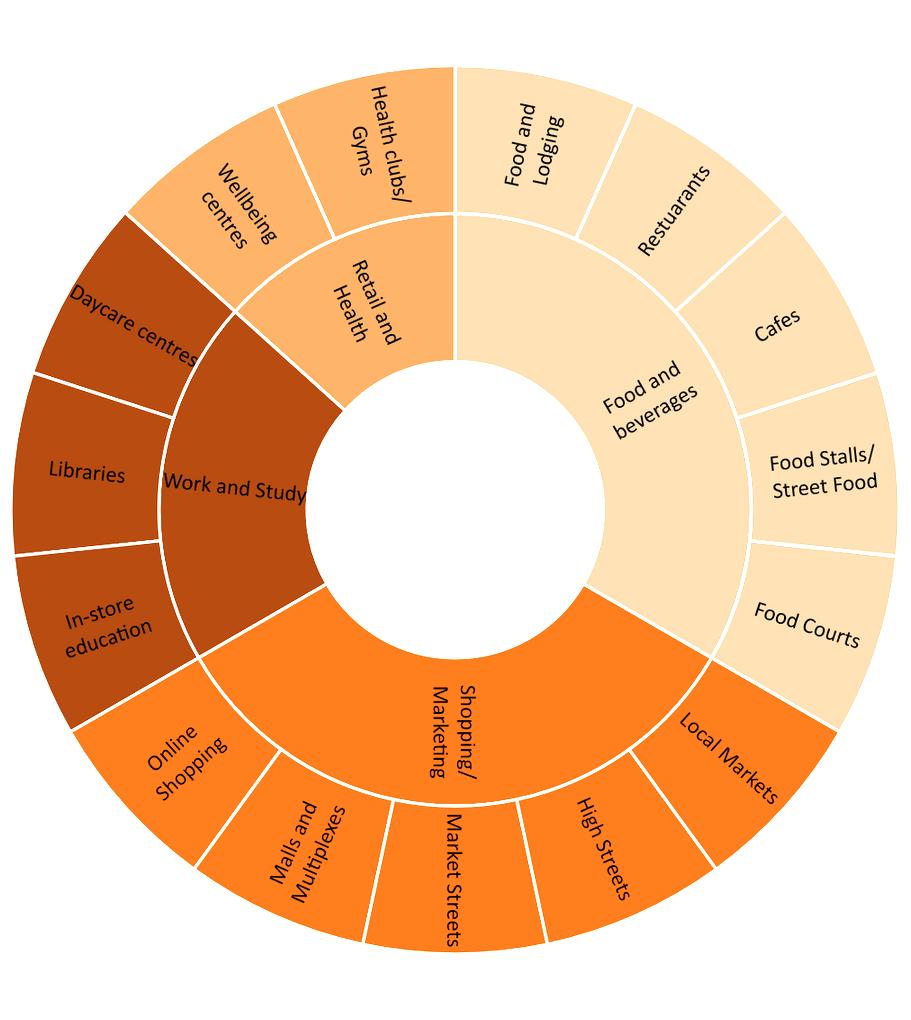
1 minute read
Review of Related Literature
from An Indicator-based Approach to Measure Retail-based Recreation in terms of Urban Sustainability
Retail Recreation
Retail recreation refers to the use of recreational activities and amenities as a means of attracting customers to a retail setting. It is the use of recreational facilities and activities for the purpose of generating revenue through the sale of goods and services.
Advertisement
Retail Recreation and Urban Sustainability
Themes Uner Retail Recreation
Customer attraction: Retailers can use recreational amenities, such as playgrounds, game rooms, or outdoor play areas, to attract customers to their stores and increase foot traffic (NRPA, 2017).
Customer retention: Can help to keep customers in a store for longer periods of time, increasing the chances that they will make a purchase (NRPA, 2017).
Customer experience: Retailers can use recreational amenities to create a more enjoyable and memorable shopping experience for customers, which can lead to increased customer loyalty and repeat business (National Environmental Education Foundation, n.d.).
Customer loyalty: Retailers that offer recreational amenities, such as loyalty programs or rewards programs that include access to recreational activities, can create a sense of community and promote customer loyalty (UNESCO, n.d.).
Sub-themes/examples under Retail Recreation themes developed by author
Community spending: Recreational activities and facilities can encourage individuals to spend money within their own community, rather than traveling to other areas for entertainment (NRPA, 2017).



